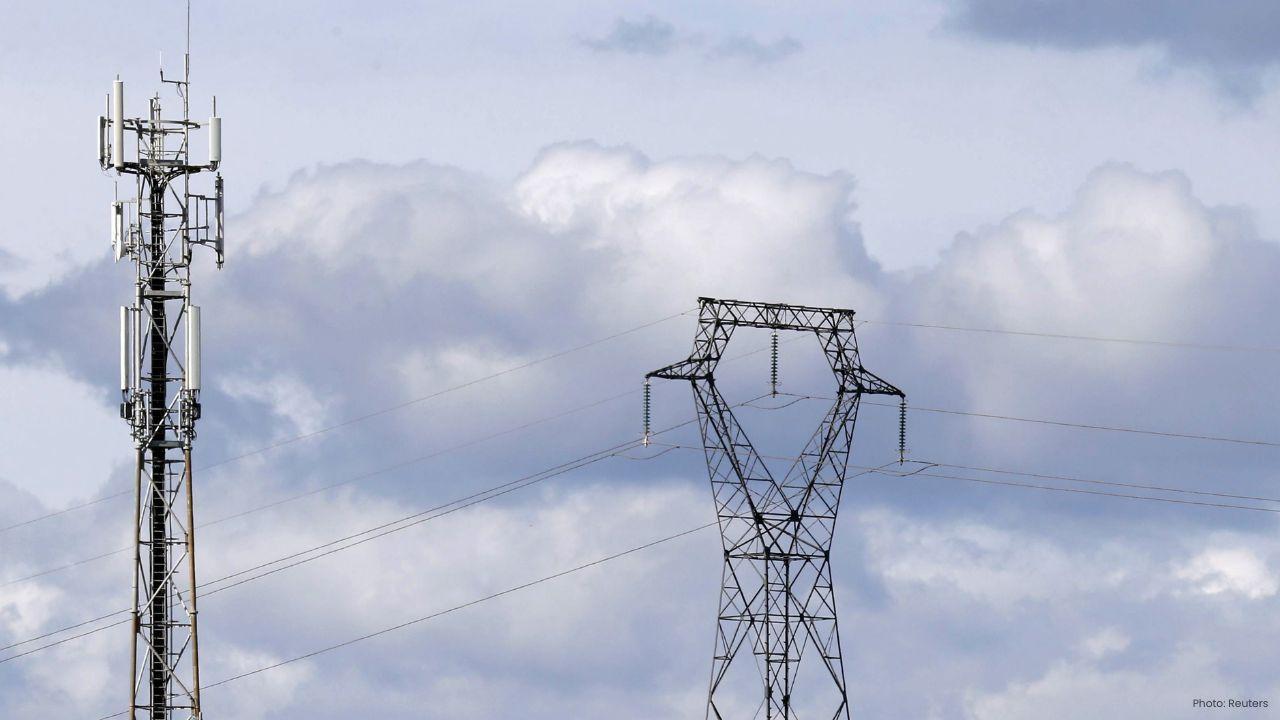
Post by : Armust Desk
India has reached a remarkable milestone in the technology sector. For the first time, a telecom system built entirely using domestically manufactured chips has received official certification from the Telecommunication Engineering Centre (TEC). This achievement is not only a significant technological breakthrough but also a step forward in the country’s journey toward self-reliance in critical technologies.
The certification highlights India’s growing capabilities in semiconductor design and manufacturing. It also supports the government’s broader goal of promoting the 'Make in India' initiative, which encourages the production of advanced technologies within the country instead of relying on imports from other nations.
What is TEC Certification?
The Telecommunication Engineering Centre (TEC) is a government organization under the Department of Telecommunications. TEC is responsible for testing and certifying all telecom equipment used in India. Certification by TEC ensures that telecom devices meet strict quality, safety, and performance standards.
When a telecom system receives TEC certification, it means the system is officially approved for use across the country. It guarantees that the equipment can perform efficiently, safely, and reliably under India’s diverse conditions. This step is crucial for both domestic deployment and potential international exports.
Announcement by IT Minister Ashwini Vaishnaw
The news of this milestone was publicly shared by Union Electronics and Information Technology Minister Ashwini Vaishnaw. He called the certification of the indigenous-chip-based telecom system “a big leap for India’s semiconductor story.”
According to the minister, this achievement demonstrates that India can design, develop, and manufacture critical technology at home. He emphasized that it strengthens the nation’s technological independence and contributes to building a robust semiconductor ecosystem.
Significance of Using Indigenous Chips
Using chips made in India is a landmark development for multiple reasons. Traditionally, India has relied heavily on imported semiconductors for various technological needs, including telecommunications. By using domestic chips, India is reducing its dependence on foreign sources, which increases national security and safeguards critical technology.
Moreover, this achievement reflects the growing maturity of India’s semiconductor industry. It shows that Indian engineers and researchers can now design and produce chips suitable for complex systems such as telecommunications networks.
Progress in Semiconductor Manufacturing
India is gradually building its semiconductor manufacturing capabilities. While the country is not yet producing the most advanced chips used in global supercomputers or high-end smartphones, it is developing mature-node chips. These chips, typically in the 28nm to 65nm range, are essential for telecom systems, automotive electronics, industrial machinery, and many other applications.
India’s semiconductor strategy focuses on producing chips that are widely used across various industries, rather than competing directly in cutting-edge technology. This approach allows India to quickly scale production and meet both domestic and global demand.
Positioning India in the Global Semiconductor Industry
This milestone positions India as an emerging player in the global semiconductor landscape. By producing reliable and affordable chips domestically, India can fill a gap in the international supply chain, especially as global demand for electronics continues to rise.
The focus on mature-node chips is strategic. These chips are used in a wide variety of applications, making them highly in demand worldwide. India’s growing capability to manufacture these chips domestically can make the country a key supplier in the international market.
TEC Certification: Gateway to Domestic and Global Deployment
Receiving TEC certification is not only a mark of quality but also a gateway for domestic and international adoption. Telecom companies across India can now use the certified system with confidence, knowing it meets rigorous standards.
The certification also opens opportunities for exporting these systems. Countries looking for reliable telecom solutions may turn to India for products built with domestically made chips, supporting India’s position in global technology markets.
Boost to the 'Make in India' Initiative
This achievement strongly supports the government’s 'Make in India' initiative. The program encourages domestic production of advanced technologies and reduces dependence on foreign suppliers. By promoting indigenous manufacturing, India can strengthen its industrial base, create skilled jobs, and enhance technological self-reliance.
The certification of this telecom system is a prime example of what 'Make in India' aims to achieve. It demonstrates how India can innovate and produce high-quality products in critical sectors such as telecommunications and electronics.
Broader Implications for India’s Technology Sector
The successful certification of a telecom system using indigenous chips is likely to inspire further innovation. It shows young engineers and technology companies that India can compete in high-tech areas. This can lead to increased investments in semiconductor research, more startups focusing on chip design, and broader collaborations with global technology firms.
It also boosts confidence among telecom operators and government agencies in using locally manufactured technology. Over time, this can reduce the country’s trade deficit in electronics, improve national security, and make India a global hub for semiconductor development.
India’s first telecom system, built with domestically produced chips, achieving TEC certification is a historic moment. It represents a successful combination of research, development, and industrial application within the country.
This milestone signifies a major step toward self-reliance in technology, supports the 'Make in India' initiative, and sets the stage for India to play a stronger role in the global semiconductor industry. With continued focus and investment, India is now well-positioned to become a key player in the technology sector, ensuring that future innovations are both homegrown and world-class.
India, telecom system, indigenous chips, TEC certification, Ashwini Vaishnaw










Advances in Aerospace Technology and Commercial Aviation Recovery
Insights into breakthrough aerospace technologies and commercial aviation’s recovery amid 2025 chall

Defense Modernization and Strategic Spending Trends
Explore key trends in global defense modernization and strategic military spending shaping 2025 secu

Tens of Thousands Protest in Serbia on Anniversary of Deadly Roof Collapse
Tens of thousands in Novi Sad mark a year since a deadly station roof collapse that killed 16, prote

Canada PM Carney Apologizes to Trump Over Controversial Reagan Anti-Tariff Ad
Canadian PM Mark Carney apologized to President Trump over an Ontario anti-tariff ad quoting Reagan,

The ad that stirred a hornets nest, and made Canadian PM Carney say sorry to Trump
Canadian PM Mark Carney apologizes to US President Trump after a tariff-related ad causes diplomatic

Bengaluru-Mumbai Superfast Train Approved After 30-Year Wait
Railways approves new superfast train connecting Bengaluru and Mumbai, ending a 30-year demand, easi